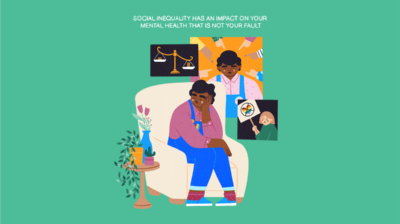How to be a good listener
Tips on being there for someone when they need it

Active listening involves really trying to understand what the other person is saying, without pushing your own thoughts or feelings on them. Some people may be nervous about supporting someone who is going through a tough time as they are afraid that they might say the wrong thing. Remember, it is okay to feel uncertain. What is important as your job as a listener is not to talk, but instead to provide a space for the other person to do the talking.
Listening to someone and allowing them to be heard can have a big impact on a person. It might sound simple, but it can make a real difference to someone experiencing difficulty in life. The more you practice active listening the more confident you will feel doing it. Start off small and let your friends know that if they are having a hard time you are there for them and want to listen.
In this article:
- Tips on listening well
- Samaritans’ listening tips
- What can I do if someone doesn’t want my help?
- What can I do if it’s an emergency?
- How can I look after myself?
Tips on listening well
- Simply giving someone the space to talk can take a weight off their shoulders, and help make them feel better. This means giving them uninterrupted time to talk about their concerns
- Pay close attention to what they are saying and keep eye contact
- If they are finding it difficult to talk let them know that you are there for them and that you want to help
- Simply saying something like ‘I know this is difficult to talk about, but thank you for trusting me.’ will put the person at ease
- Don’t be afraid of a little silence as it is often all that is needed for the person to open up and speak about what is going on for them
- Ask them how they are and what you can do to support them during this tough time.
- You can start a conversation by saying ‘You haven’t seemed yourself lately. Is there anything I can do to help?’
- Don’t be afraid to ask if they are suicidal if you feel they might be. Read our fact sheet on suicide
- Listen carefully and pay attention without any judgement.
- Put yourself in their shoes and imagine how you would feel in their situation
- Pay attention to body language as it can reveal a lot about how the person is feeling. They may be fidgeting a lot or unable to keep your eye contact
- Don’t be afraid to ask questions if you need to, but remember that your main job is to listen and not to talk. However, asking some open questions can often help get a conversation started
- It can be upsetting to see someone you care about upset and distressed, but it’s important that you stay calm. This will help the other person stay calm also
- Give a clear message of hope and that there is help out there. Your friend or family member will not always feel like they do today, they will get through this and that you and others will be there for them
Samaritans Listening Tips
The Samaritans are experts at giving people the space to open up around what has been going on for them. The below tips are based on their active listening skills and can be used to get a friend or loved one to open up about what’s going on for them.
1. Ask open questions
Instead of asking questions which only require a yes or no answer, try and ask open questions. This is the How?, What?, Where?, Who? , and Why? Question.
For example instead of saying ‘has this been going on a long time?’, ask ‘how long has this been going on?’
2. Give words of encouragement
Don’t forget to give words of encouragement to the person as they tell their story.
3. Summarising
This helps to show the person that you’ve been listening and that you’ve understood what has been said. Summarise what they’ve said and say it back to them. A summary helps to show the individual that you have listened and understood their circumstances and their feelings.
4. Reflecting
Repeating back a word or phrase can encourage people to go on. If someone says, ‘So it’s been really difficult recently,’ you can keep the conversation going simply by repeating a word they used in their sentence. Repeating back a word or phrase encourages the individual to carry on and expand.
5. Clarifying
We all tend to gloss over important or difficult things without thinking. If this happens saying something as simple as ‘tell me more about this’. This can not only help clarify the point for you, but for them as well. Sometimes someone may gloss over an important point. By exploring these areas further you can help them clarify these points for themselves.
6. Reacting
You don’t have to be completely neutral. If whoever you’re talking to has been having a dreadful time, some empathy and understanding is vital. Simply acknowledging this is important, so don’t be afraid to say ‘you’ve had an awful time’. You need to show that you have understood the situation by reacting to it – “That sounds like it is very difficult”
What can I do if someone doesn’t want my help?
It can be difficult if you feel that someone you care about is in a bad place but won’t reach out for help or take the help that you have offered them. This can be frustrating for all involved but it’s important that you remember that there are limits to the help that you can offer. Remember that there is only so much you can do and try not to beat yourself up about it. Be patient, it may take a while for them to open up and feel comfortable talking with you and this is perfectly normal. Tell them that you are there for them when they are ready to seek help. If you are worried about the person, it may be time to contact a family member and tell them your concerns.
What can I do if it’s an emergency
There may be times when your friend or family member needs to seek help urgently. They may be experiencing suicidal feelings, and feel that they may act on them, or they may be at risk of harming themselves or others.
In an emergency, it’s important that you help them seek medical help as soon as possible. You can accompany your friend to any hospital A&E department and ask for help. If you cannot make your way to a hospital, ring 999 or 112. Stay with them while you wait for emergency services to arrive, or go with them to the hospital for help.
How can I look after myself?
Providing support to someone else can be draining and exhausting leaving you feeling totally zapped of energy. Mind yourself and be aware of the impact on your own mental wellbeing.
- Make time to take a break from supporting your friend and treat yourself to something nice.
- Know your limits. Be realistic about what support you can offer and try not to take too much on.
- Even if your friend has asked you not to tell anyone, it is important that you talk to a professional so that your friend can get the support that is needed.
- Talk to someone you trust. Don’t forget to look after your own mental health by talking to someone else and getting things off your chest.






